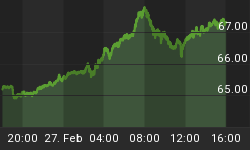The Trump administration’s bid to ban Chinese social media platforms took another hit on Monday when the U.S. Court of Appeals in San Francisco ruled that banning WeChat might violate the free-speech rights of its users, which include some 19 million people in the U.S. alone.
In August, President Trump banned TikiTok and WeChat from operating in the United States, taking effect in 45 days unless they were sold by their Chinese-owned parent companies.
In the executive order, the administration said that TikTok and WeChat captured “vast swaths of information” from their users, which essentially gave the Chinese Communist Party access to Americans’ personal and proprietary information.
However, on Monday a U.S. appeals court denied the administration’s request to immediately ban the app, backing last month's ruling by a federal court judge who had blocked the ban.
In mid-September, at the request of a group of app users calling themselves the “WeChat Alliance”, U.S. Magistrate Judge Laurel Beeler in San Francisco issued a preliminary injunction the day before the ban was to go into effect.
The group, which sued the government to stop the ban immediately after the issuance of the executive order, argued the app was the primary way for Chinese speakers in the U.S. to connect with the family in China as well as receive information locally.
On the flip side of this debate, the Department of Justice (DoJ) argues that WeChat’s parent company, Tencent, can collect a “digital facsimile of a person’s life” and enable the Communist Party to use the app to disseminate propaganda, track users, and steal their private and proprietary data.
However, in Monday’s ruling, a three-judge panel said the administration hasn’t sufficiently demonstrated the threat or shown it will suffer “an imminent, irreparable injury” for the duration of the litigation.
Several U.S.-based companies already voice their concern about the ban.
WeChat business in the U.S. accounted for only 2% of its overall global revenue, so it remains unclear exactly to what extent a WeChat ban would affect U.S. companies.
Back in August, Apple said the ban would’ve caused its iPhone shipments to dip by as much as 30% due to WeChat’s widespread usage in China.
The DoJ isn’t giving up--even if it’s not getting its immediate ban. It’s taking the battle to the Ninth Circuit US Court of Appeals, which set a hearing for the case for January next year.
Even if the government doesn’t succeed to ban the app, Tencent still might see certain restrictions in the U.S. Bloomberg reported earlier this month that the administration has reportedly been working on plans to restrict the expansion of WeChat’s payment services, WeChat Pay.
As for TikTok, a hearing to decide whether to allow a local ban on TikTok to go ahead will take place on 4 November, the day after the election. The ruling will be made by the same judge that has already prevented the Trump administration from forcing TikTok off Apple and Google's app stores.
The judge, Carl Nichols of the U.S District Court for the District of Columbia, blocked Trump's TikTok ban and granted a temporary relief for users, which comprise some one-third of Americans.
Initially, president Trump ordered that Tik-Tok must either sell its U.S. operations to American companies or be barred from the country. But rather than a sale, a tentative agreement made Oracle TikTok’s trusted technology partner in the U.S., and created a new entity called TikTok Global. The deal has not yet been finalized.
By Michael Kern for Safehaven.com
More Top Reads From Safehaven.com:
















